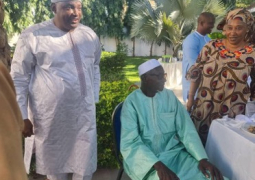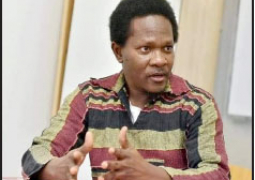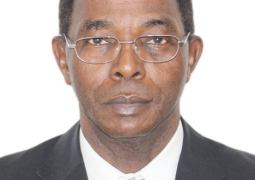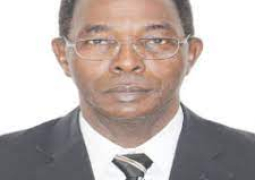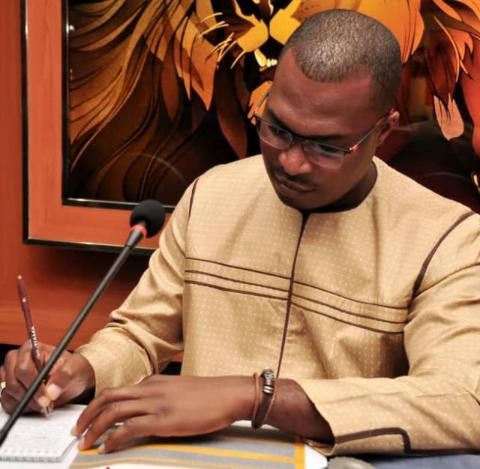
For decades, The Gambia has been hailed as a haven of peace and tolerance in Africa, a small West African nation where diverse ethnic groups coexisted with little open strife. Its reputation as the “Smiling Coast of Africa” often evoked images of unity and shared destiny among Mandinka, Fula, Wolof, Jola, Serahule, Manjagoes, Sererers, and other communities. Yet beneath the veneer of harmony, silent tensions have begun to emerge—manifesting in subtle but dangerous ways through tribal politics and the marginalization of minority groups. If not addressed, these tendencies could erode the country’s fragile democracy and stability.
Brewing Ethnic Politics in Gambian Democracy
Politics in The Gambia has always had an undercurrent of ethnicity, but recent developments suggest that the phenomenon is no longer just under the surface—it is becoming increasingly visible. The case of Ahmed Talib Bensouda, a young politician, illustrates this growing malaise. When Bensouda indicated interest in contesting for the presidential flagbearer of the United Democratic Party (UDP), he was not merely challenged on political grounds. He was called names, bullied, and ostracized to the point where resignation became his only option.
This episode reveals an uncomfortable truth: in Gambian politics today, ethnicity and identity are being weaponized to limit participation and reinforce exclusivity. This contradicts the very essence of democracy. As one observer remarked, “Political positions should not be the exclusive reserve of some individuals or ethnic groups. In politics, both majority and minority ethnic groups should be carried along in the spirit of oneness and national interest.”
The Gambian Constitution upholds equality of all citizens regardless of origin, religion, or tribe. Yet the lived reality increasingly suggests otherwise. When politics becomes the preserve of particular groups, the silent tensions deepen. As Nelson Mandela once warned, “Where globalization means, as it so often does, that the rich and powerful now have new means to further enrich and empower themselves at the cost of the poorer and weaker, we have a responsibility to protest in the name of universal freedom.” This statement, though global, resonates in The Gambia: those in dominant ethnic blocs cannot monopolize political positions at the expense of smaller groups.
The dangers of ethnic politics
Ethnic politics, if left unchecked, does not simply divide communities; it breeds mistrust, fuels resentment, and eventually sparks conflict. Africa’s post-colonial history is replete with examples—Rwanda, Côte d’Ivoire, and Kenya—where politics structured around ethnic fault lines degenerated into chaos.
The Gambia must learn from these cautionary tales. As Patrice Emery Lumumba observed, “We cannot continue to do the same thing year in and year out and expect different results. The tragedy with Africa is that those with ideas are not in power, while those in power have no ideas. When the people have a chance to vote, they still vote for those with no ideas.” If Gambians continue to allow tribal politics to dictate leadership choices, the country risks replacing merit with mediocrity, ideas with identity, and national vision with narrow loyalty.
The rise of tribal rhetoric in political discourse, particularly on social media, signals a worrying trajectory. Supporters of parties or leaders increasingly frame their arguments not in terms of policies or development strategies, but through the prism of ethnicity. This undermines the sense of collective belonging that has long sustained the Gambian state.
Towards a Level Playing Ground
For The Gambia to avoid sliding into ethnic polarization, political positions must be pursued and allocated in a fair, inclusive, and merit-based system. No ethnic group, whether Mandinka, Fula, Wolof, or Jola, is more important than the other. As Gambians often say, “Unity in diversity is our strength.” But this slogan must translate into practice, not remain an empty catchphrase.
Leaders, political parties, and civil society organizations must take deliberate steps to foster inclusivity. This includes:
Ensuring equal representation of minority groups in government appointments.
Enacting policies that prohibit discrimination based on ethnicity in politics.
Promoting national narratives that highlight shared struggles and collective aspirations.
In addition, the media must be cautious not to amplify ethnic chauvinism, and religious leaders must remind citizens of the common humanity that binds all Gambians. As the late Kofi Annan wisely stated, “We may have different religions, different languages, different colored skin, but we all belong to one human race.”
Preventing The Gambia from Becoming a “Country of Concern”
If left unchecked, tribal politics could push The Gambia onto the global watchlist as a “country of concern.” For a nation that has prided itself on peace amidst turbulent neighbors, this would be a tragic reversal. Ethnic marginalization undermines democracy, weakens institutions, and creates conditions for authoritarian leaders to exploit divisions.
Instead, The Gambia must rise above these divisive currents and reaffirm itself as a model of tolerance. Gambians must remember that their destiny is collective. As Kwame Nkrumah once proclaimed, “Divided we are weak; united, Africa can become one of the greatest forces for good in the world.”
Conclusion: Building a Politics of Oneness
The silent tensions of tribal politics in The Gambia cannot remain silent for long. If ignored, they may erupt into conflicts that would rob the country of its stability and reputation as a haven. Ethnic politics has no place in a democratic state that seeks to build institutions based on fairness, equality, and justice.
The Gambian people must reject the temptation of tribalism and embrace the spirit of oneness. As citizens, their loyalty should be to the flag, not to tribe; to the nation, not to identity. Political competition must exist on a level playing ground where every Gambian, regardless of ethnic background, can aspire to the highest office in the land.
In the end, the future of The Gambia lies not in the dominance of one ethnic group, but in the collective strength of all its people. To safeguard this future, Gambians must act now—before the silent tensions become audible cries of division.


